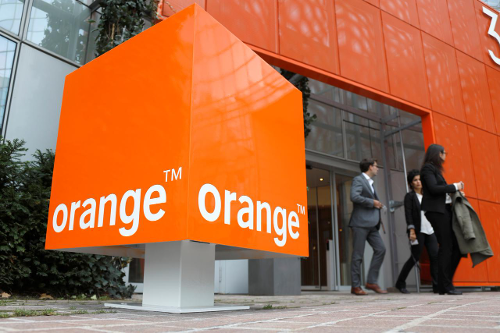Orange CI Drags BRVM Indices Down Amid Profit-Taking

TLDR
- BRVM experienced notable decline led by significant drop in Orange Côte d'Ivoire shares, down 5.21% to 14,100 FCFA.
- Orange CI decline attributed to profit-taking by investors following recent gains, makes it second-worst performing stock of the day.
- ETI and BOA Mali also among biggest losers, with ETI down 5.88% at 16 FCFA and BOA Mali down 2.68% at 2,000 FCFA.
The Bourse Régionale des Valeurs Mobilières (BRVM) experienced a notable decline on Monday, led by a significant drop in Orange Côte d'Ivoire shares.
The telecom giant’s stock (ORAC) fell by 5.21% to 14,100 FCFA, resulting in a capitalization loss of 116.76 billion FCFA ($199 million). This sharp decline pulled down the BRVM Composite and BRVM 30 indices, which dropped by 1.42% and 1.60%, closing at 249.33 points and 125.15 points, respectively.
The decline in Orange CI is largely attributed to profit-taking by investors following recent gains. The stock's decline positioned it among the day's biggest losers, alongside Ecobank Group (ETIT) (-5.88% at 16 FCFA) and BOA Mali (BOAM) (-2.68% at 2,000 FCFA).
You can follow Daba’s reporting on Africa on WhatsApp. Sign up here
Key Takeaways
The BRVM’s performance on Monday was heavily influenced by the sharp decline in Orange CI shares, which led to a significant drop in both the BRVM Composite and BRVM 30 indices. The decline underscores the impact of profit-taking on market dynamics, particularly for stocks that have experienced recent gains. Despite this, the market saw notable performances from Total SN, Bernabé, and NSIA Banque CI, with the latter reaching a two-year high. The high trading volume in Orange CI shares reflects continued investor interest, albeit with a focus on realizing gains in the short term. Meanwhile, Sucrivoire’s planned bond issue and capital increase highlight ongoing corporate strategies to strengthen financial stability and support growth initiatives in the region.

Next Frontier
Stay up to date on major news and events in African markets. Delivered weekly.
Pulse54
UDeep-dives into what’s old and new in Africa’s investment landscape. Delivered twice monthly.
Events
Sign up to stay informed about our regular webinars, product launches, and exhibitions.




